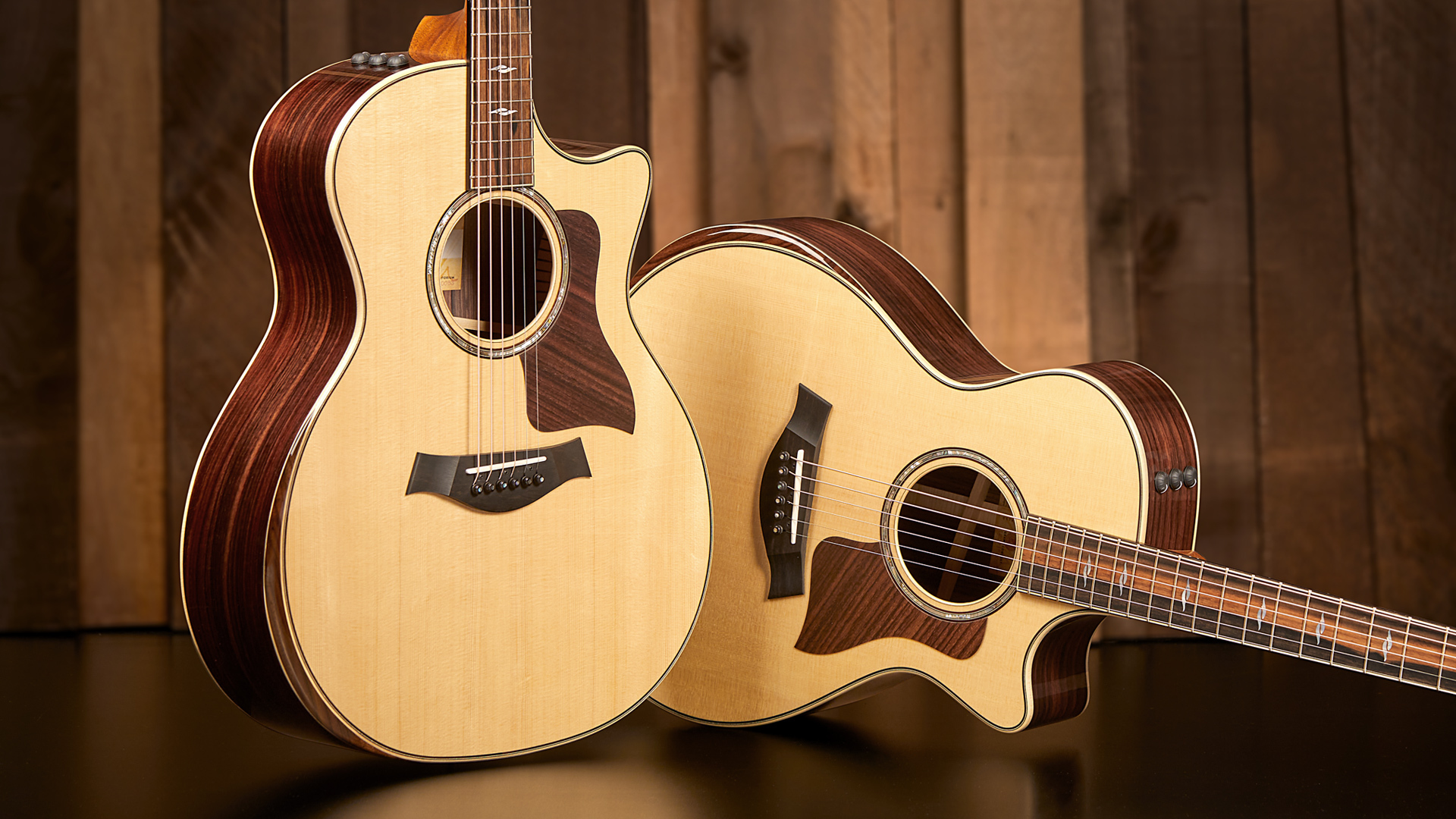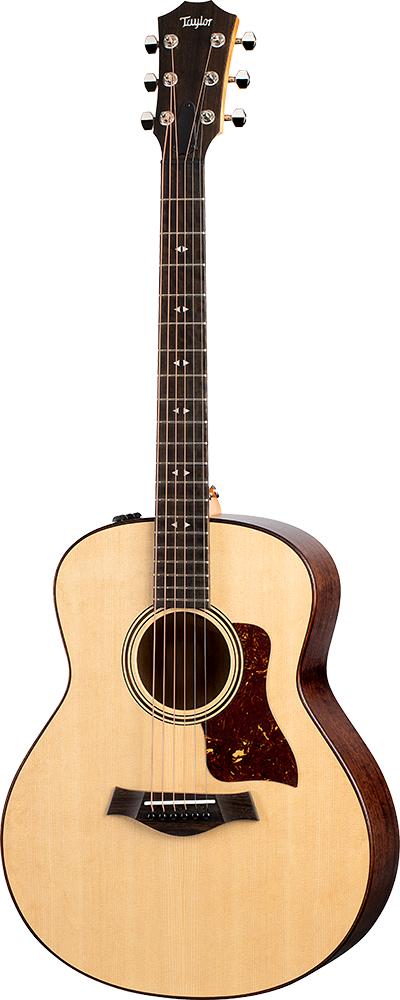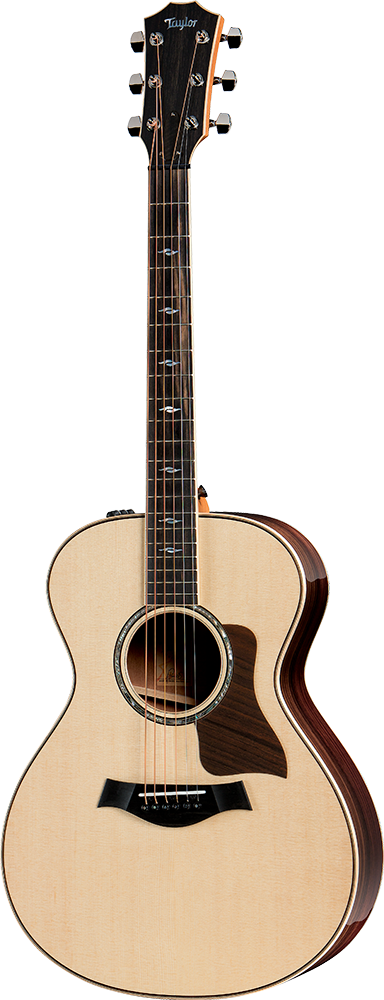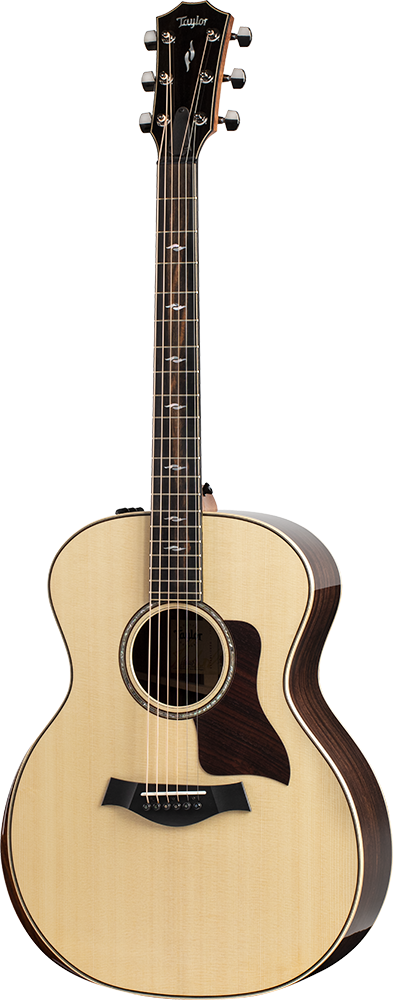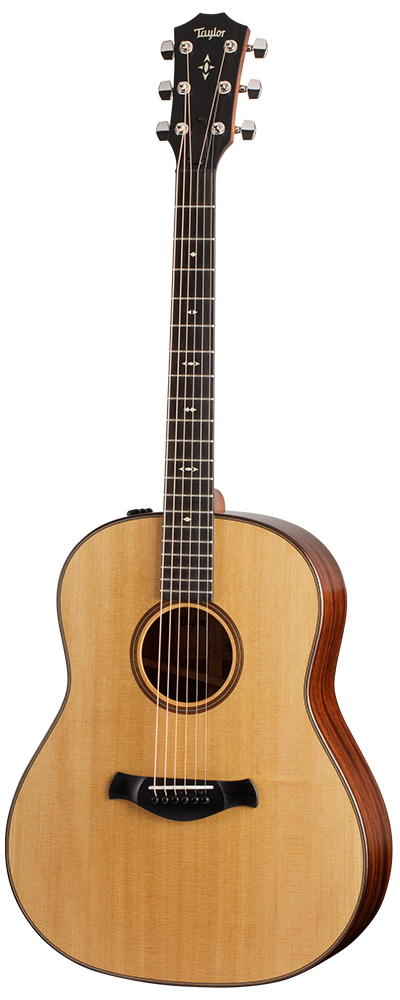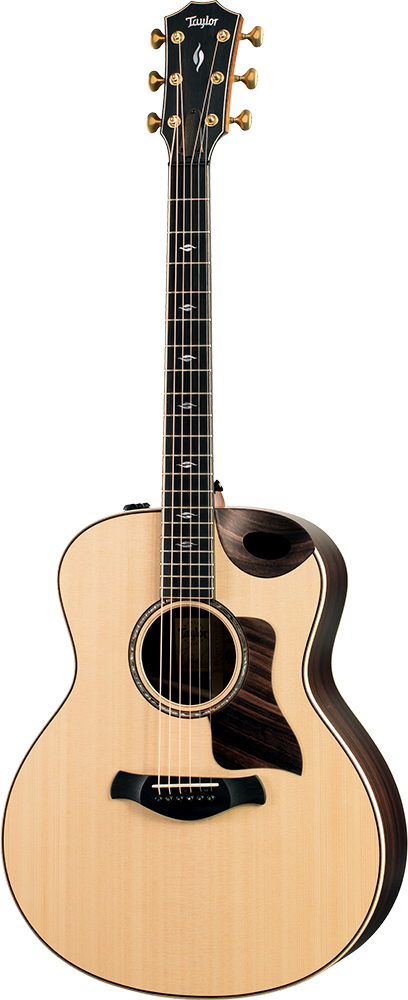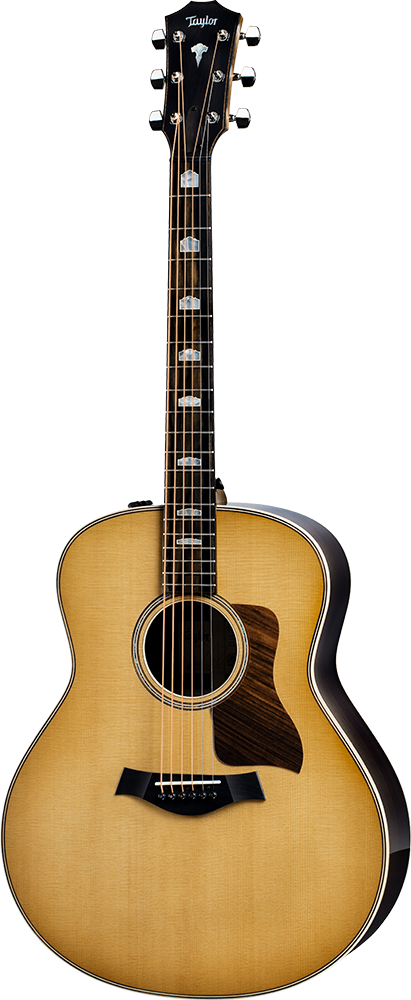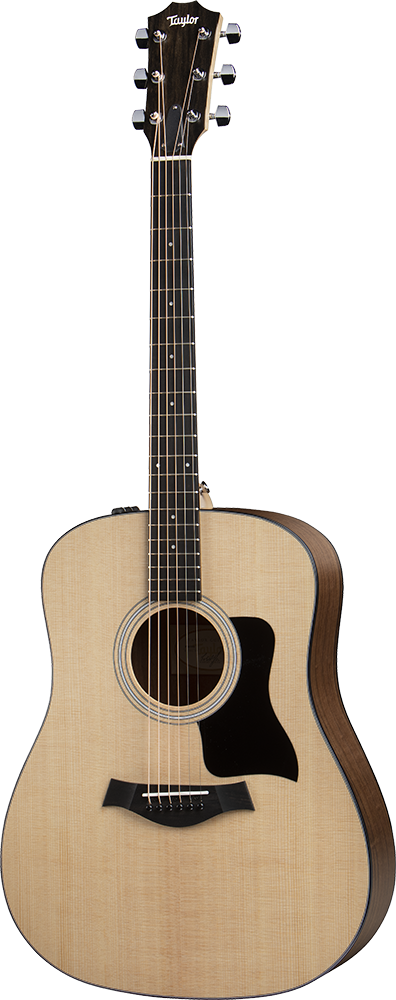Body shape is a great place to start your search for the right acoustic guitar model. That’s because the shapely curves and depth that define the body’s dimensions will influence both your physical relationship to the guitar and the type of voice it produces. Once you find the right shape, you can play and compare versions with different tonewood pairings. (For more on that, see our guide to tonewoods.) Here are a few considerations when it comes to comparing different body styles.
Feel
Comfort is important, so pay attention to how the body proportions feel when you play. A smaller guitar with a more tapered waist and slightly shallower body depth tends to create a more intimate feel. With larger bodies, consider the comfort of your picking/strumming arm in relation to the size of the lower bout, especially if you often play while seated. Body depth can also be a factor. Additionally, some Taylor models have advanced comfort features like chamfered (rounded) body edges or an armrest.
Neck-to-Body Relationship
Though not part of the body, the neck is connected to it, so the orientation of the two is another key comfort consideration. One factor is the point where the neck joins the body (12th or 14th fret). Another is the string scale length (the length of the string from the nut to the saddle), which in some cases varies based on the body shape. These design distinctions will influence how close together your hands are when you play, the amount of string tension, and the spacing between frets.
Sound
An acoustic guitar body is a natural amplifier for the strings. The body dimensions define the air capacity inside the guitar, and the amount of air volume tends to emphasize certain frequencies. In general, the smaller the air volume, the more focused the voice, often with an emphasis on upper-register frequencies. The greater the air volume, the bigger and deeper the voice, with an emphasis on low-end frequencies.
The Secret Sauce: Bracing
An acoustic guitar’s internal bracing architecture works in concert with the body shape and tonewoods to voice the guitar in unique ways. Our proprietary bracing patterns have been designed by master builder Andy Powers to optimize the tonal properties of each model. These include our award-winning V-Class® bracing, featured on most of our U.S.-made steel-string guitars. The patented design enhances the response of the guitar body to the vibrating strings, putting them more in tune with each other and producing more volume, more sustain and better harmonic agreement between notes. It’s also a framework that can be fine-tuned in unique ways based on the body style and tonewood pairing, which creates a more distinctive sonic personality for each model. Another proprietary voicing system, C-Class™ bracing, is used with our Grand Theater body to coax more low-end warmth from the smaller guitar.
Travel-size Body Shapes
We also offer several scaled-down versions of existing body styles: the GS Mini (based on the Grand Symphony), the Baby Taylor (a three-quarter-scale dreadnought) and the Big Baby Taylor.
How does a cutaway affect tone?
What people usually want to know is whether a cutaway diminishes a guitar’s tonal output. The answer: not in a discernible way. One might argue that it enhances the tone in the sense that it offers access to more notes along the treble-side of the fretboard where the neck meets the body. We recommend that you decide based on whether you want that extra upper-fretboard range or simply based on your aesthetic preference, as some people prefer the more traditional, symmetrical look of a non-cutaway, while others favor the sleek contouring of the cutaway. Many of our models can be ordered with or without a cutaway, but some guitars are offered exclusively in non-cutaway form: all Grand Theater, Grand Pacific and Grand Orchestra models, plus the Academy Series, GS Mini Series and Baby Series.

When you’re searching for the right acoustic guitar, one of the fundamental considerations is body shape. The body’s curves and depth help define our physical relationship with the guitar and literally shape the sound it produces. In addition to our family of full-size guitar bodies, we offer three scaled-down versions of existing shapes — the Baby Taylor (traditional dreadnought shape), the GS Mini (Grand Symphony), and the Big Baby Taylor.
Grand Theater
(Models end in a 1; e.g., 811)The GT sports the curves of the Grand Orchestra, but they’re scaled into uniquely compact proportions, including a shorter scale length. Its dimensions position it between our Grand Concert and travel-friendly GS Mini. Thanks to Andy Powers’ C-Class bracing wizardry, the GT packs the tonal depth of a full-size guitar into a form that’s easy and fun to play. If you crave a parlor-style guitar reimagined for the modern era, wrap yourself around this body style and enjoy.
Grand Concert
(Models end in a 2; e.g., 812)This compact shape blends an intimate feel with an articulate, touch-sensitive response. Voiced with V-Class bracing, these guitars produce impressive volume and sustain. The 14-fret models lean toward a vibrant, high-definition sound, while 12-fret editions feature a slinkier handfeel and produce extra warmth and sweetness. We’ve also embraced the GC shape for most of our 12-string models to make the 12-string playing experience more accessible and musically useful.
Grand Auditorium
(Models end in a 4; e.g., 814)Taylor’s flagship shape remains our most popular for its comfort and musical range. The quintessential modern workhorse, its notes are vibrant, well-defined, and balanced across the tonal spectrum, thanks in part to having a more tapered waist that a traditional dreadnought. It responds well to both fingerstyle and strumming, and it’s a reliable tool for recording and live performance. Among our shapes, it’s the Swiss Army knife of the line.
Grand Pacific
(Models end in a 7; e.g., Builder’s Edition 517)Our round-shoulder dreadnought delivers a different flavor of Taylor tone: a warm, seasoned voice in which notes overlap in a way that recalls traditional acoustic recordings. The difference is that no studio enhancements are needed to produce great acoustic tone here. V-Class bracing pumps out clear low-end power, making this a more musical, usable voice that’s as versatile as the Grand Auditorium and as assertive as a traditional dread.
Grand Symphony
(Models end in a 6; e.g., 816)Featuring a larger air chamber than the Grand Auditorium, the Grand Symphony combines V-Class bracing with an innovative soundport cutaway. The two components work together to produce a high-fidelity, symphonic voice that’s truly unique. The way the sound radiates creates an immersive, reverb-like effect with remarkable sustain. Together with its slightly shorter scale length and light-gauge strings, the GS is a great option for a seasoned player looking for a whole new acoustic experience.
Grand Orchestra
(Models end in an 8; e.g., 818)Our biggest, deepest body shape has evolved from our former Jumbo shape. Our V-Class voicing architecture harnesses the Grand Orchestra’s huge air capacity to unleash a powerful sound, capable of deep rumble and rich sustain. Yet equally impressive is its touch sensitivity, giving it remarkable dynamic range and impressive versatility. Currently the GO shape is offered with two wood pairings: rosewood and spruce or maple and torrefied spruce.
Dreadnought
(Models end in a 0; e.g., 210)The most traditional body design in the Taylor family, our Dreadnought shape has continuously been refined over the years to create a clearer, more balanced sound (to go with our ultra-playable necks). The Dread’s wider waist contributes to a robust voice with low-end power, a snappy midrange, and brilliant treble notes. Here, we’ve retained our X-bracing framework. The body shape is featured within the Academy, 100 and 200 Series.
